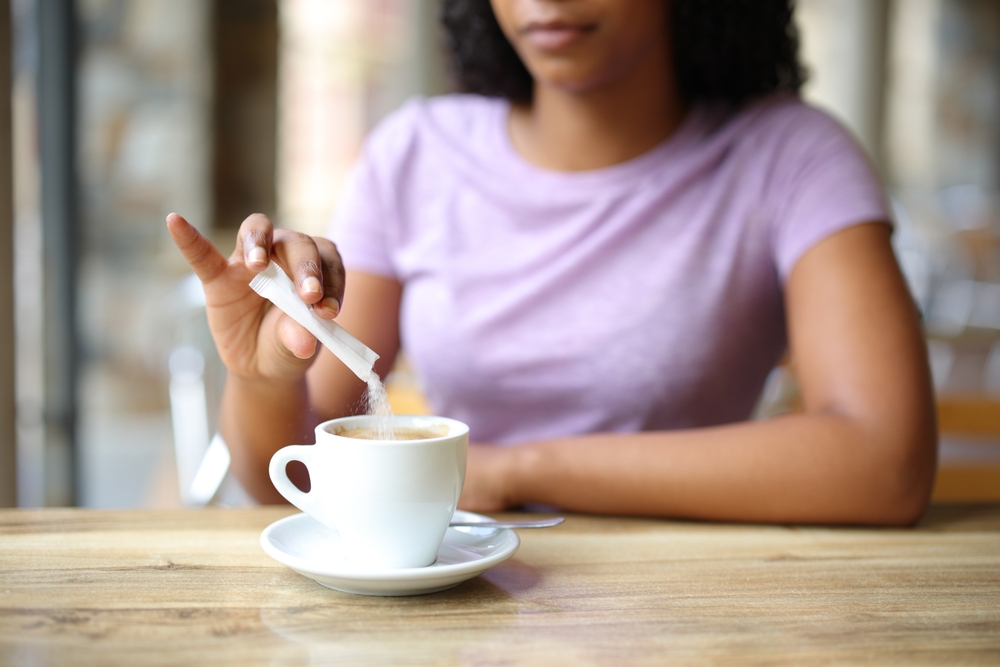Stevia has become a popular alternative to traditional sweeteners, offering a sugar-free and calorie-free option for those looking to maintain a healthier lifestyle. While stevia in its pure leaf form has remarkable benefits, there is a growing trend of processed stevia packets on the market. This raises the question: Why should you choose stevia leaves over processed packets?
Understanding the difference
Stevia leaves are the purest form of the sweetener, offering a natural and unprocessed way to enjoy the plant’s benefits. The leaves contain sweet compounds called steviol glycosides, which can be up to 300 times sweeter than sugar. These leaves are typically dried and then used to sweeten food and beverages directly.
Processed stevia packets contain extracts from the stevia plant, often mixed with other sweeteners or additives. These packets may contain only small amounts of steviol glycosides, diluted with bulking agents such as erythritol, dextrose or maltodextrin. While they still offer sweetness without sugar’s caloric content, they are far from the natural stevia leaves and may carry potential health concerns.
Benefits of choosing stevia leaves
Whole-food benefits and nutrients
Stevia leaves in their natural form contain a range of nutrients and antioxidants. When you consume the whole leaf, you’re also getting phytonutrients that are lost in processed forms. These nutrients can promote overall well-being, unlike processed packets, which strip the stevia of its natural components.
Less processing, fewer additives
One of the main reasons to choose stevia leaves over packets is the level of processing involved. The less a food is processed, the closer it is to its natural state, which generally makes it healthier. Whole stevia leaves don’t undergo the refining and bleaching that processed packets do, allowing you to avoid consuming unnecessary additives or chemicals that can have unintended health consequences.
Avoiding artificial sweeteners and hidden sugars
Some processed stevia packets contain artificial sweeteners or sugar alcohols like erythritol or maltodextrin. While these additives are often considered safe in small amounts, their long-term effects are still not fully understood. Moreover, they can lead to digestive issues in some people, particularly in larger quantities. Opting for stevia leaves means you’re avoiding these potential pitfalls and sticking to a natural, plant-based alternative.
Sustainable and environmentally friendly
Stevia leaves, when harvested and dried naturally, have a significantly smaller environmental footprint than processed packets. The production of processed stevia often involves extensive chemical processes, packaging and transport. By choosing stevia leaves, you’re opting for a more sustainable option, reducing your contribution to environmental waste and carbon emissions.
Better taste without aftertaste
Many people who use processed stevia packets often complain of a bitter aftertaste or a flavor that doesn’t quite match up to their expectations. Natural stevia leaves, however, tend to have a more authentic taste and may lack the bitterness that comes from chemical extraction. This makes stevia leaves an appealing choice for those who want sweetness without any unpleasant aftertaste.
How to use stevia leaves in your diet
Incorporating stevia leaves into your diet is simpler than you might think. Fresh or dried, these leaves can be added to a variety of foods and beverages to provide a natural sweetness without the health downsides of sugar or artificial sweeteners.
Brewing stevia leaf tea
One of the easiest ways to use stevia leaves is to brew them into a tea. Simply place a few dried leaves in hot water, let them steep and enjoy a naturally sweetened beverage. You can also add stevia leaves to herbal or green tea blends.
Sweetening smoothies and desserts
You can also blend stevia leaves into smoothies, baked goods or other sweet treats. Dried stevia leaves can be ground into a powder and used as a sweetener in your favorite recipes. Just remember, stevia is much sweeter than sugar, so a little goes a long way.
Adding to savory dishes
Surprisingly, stevia leaves can also be used to enhance the flavor of savory dishes, like marinades, sauces or salad dressings. They can add a subtle hint of sweetness that balances out acidity or spice in many recipes.
The potential risks of processed stevia packets
While stevia packets are marketed as a healthy alternative to sugar, there are some potential concerns you should be aware of before opting for processed forms.
Chemical additives and their effects
Processed stevia packets often contain additives and sweeteners like maltodextrin, which can have unintended health effects. Some of these additives can cause digestive issues, and others may even impact blood sugar levels.
Overconsumption and sweetness overload
Because processed stevia is highly concentrated, it’s easy to overconsume. This can lead to an over-stimulation of your taste buds, potentially making naturally sweet foods like fruits less satisfying. Over time, this can negatively affect your ability to enjoy the natural sweetness in whole foods, leading to increased cravings for sugary snacks.
Potential health risks
Studies on processed stevia products suggest that some of the chemicals used in their production might not be as safe as initially thought. In some cases, these additives can affect gut health, influence blood glucose or even impact hormone regulation. By choosing stevia leaves, you reduce your risk of exposure to potentially harmful substances.
Choosing stevia leaves over processed packets is a step toward better health and well-being. Not only do you get to enjoy a natural sweetener that aligns with a holistic lifestyle, but you also avoid the pitfalls of chemicals, additives and artificial sweeteners that come with processed options. By embracing the simplicity and benefits of stevia leaves, you’re taking control of your health and making a conscious decision to choose the best for your body and the environment.
This story was created using AI technology.












